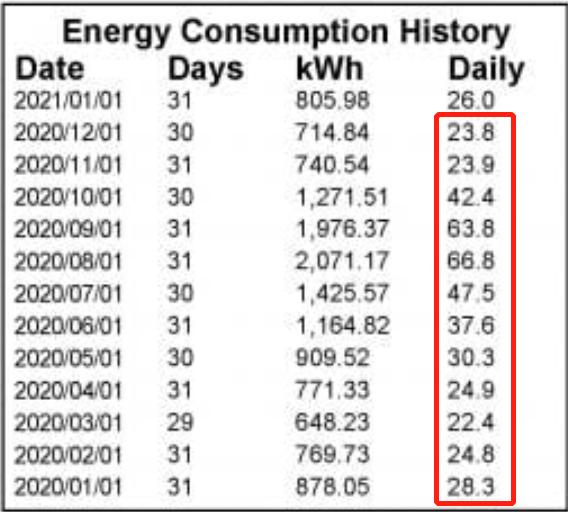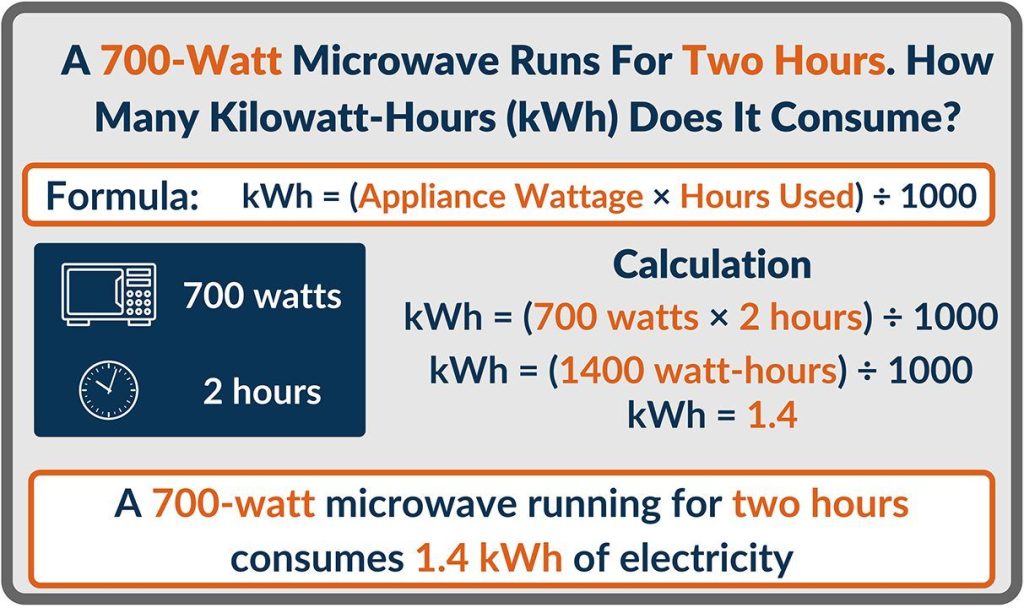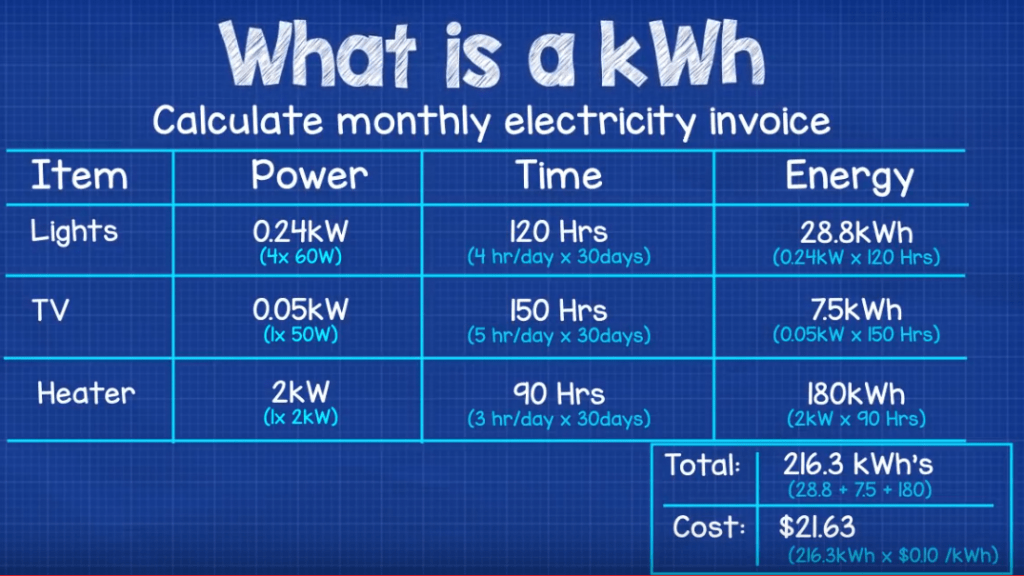Out Of This World Info About Is 20 Kw Enough To Run A House

How Many KWh Does The Average Home Use? Renogy Canada
Powering Your Home
1. Understanding Your Home's Energy Appetite
So, you're pondering the big question: "Is 20 kW enough to run a house?" It's a common question, and honestly, the answer isn't a simple yes or no. It's more like a "it depends!" Think of your house like a hungry beast. Some beasts have small appetites, nibbling on energy, while others are ravenous and constantly demand more. To know if 20kW is sufficient, you need to understand what fuels your home's particular appetite.
Let's face it, modern living is energy-intensive. We have refrigerators humming, TVs blaring, computers crunching numbers, and HVAC systems battling the elements. And then there are the smaller, yet significant, power drains: phone chargers, lights, and the ever-present coffee maker. All of these contribute to your total energy demand.
That being said, "20 kW" refers to the maximum power your electrical panel can safely supply at any one moment. It's not about how much energy you use over a month, reflected in your electric bill (that's measured in kilowatt-hours, or kWh). It's about whether you can run everything you need simultaneously without tripping a breaker. So, if you try to boil water, run the AC, and charge your EV all at the same time, will 20kW handle it? That's what we're trying to figure out.
The key is to estimate the simultaneous load. A small, energy-efficient home in a mild climate will have vastly different needs than a large, drafty house in a region with scorching summers and freezing winters. It's all about calculating your peak demand and comparing it to the 20kW limit. More on that later!

What Is A KilowattHour (kWh)?
What Gobbles Up the Most Power? The Usual Suspects
2. Identifying Your Home's Energy Hogs
Alright, let's play detective and identify the biggest power hogs in your home. These are the appliances that will significantly impact whether that 20kW is enough to keep your lights on and your appliances running smoothly. Think of them as the gluttons at the energy buffet.
First up, the heavyweight champion: your HVAC system (heating, ventilation, and air conditioning). Especially if you have an older, less efficient system, this can be a massive energy drain, particularly during peak seasons like sweltering summers or frigid winters. Electric furnaces and central air conditioners are notorious for their high power consumption. Consider upgrading to a more efficient heat pump to lighten the load.
Next, we have the water heater. Whether it's electric or gas, heating water requires a substantial amount of energy. Electric water heaters, in particular, can be quite power-hungry. Consider a tankless water heater for on-demand hot water and potentially lower energy consumption, or a heat pump water heater for improved efficiency.
Appliances like electric stoves, ovens, clothes dryers, and even dishwashers can also draw a significant amount of power, especially when used simultaneously. While you might not be baking a cake, drying clothes, and washing dishes all at once, it's important to be aware of their energy consumption and plan your usage accordingly. And don't forget the refrigerator while it runs constantly, newer models are generally pretty efficient.

Crunching the Numbers
3. Doing the Math (Don't Worry, It's Not That Scary!)
Okay, time for a little math! Don't worry, we'll keep it simple. The goal here is to estimate your peak power demand. This is the maximum amount of power you're likely to use at any one time. Think of it like figuring out the heaviest weight you'll lift during a workout — you want to make sure you're prepared.
Start by listing all the major appliances and devices in your home that you might use simultaneously. This could include your HVAC system, water heater, oven, stove, clothes dryer, dishwasher, microwave, refrigerator, lights, TVs, computers, and any other significant power users. For each appliance, find its wattage (often listed on a label on the appliance itself). If it's listed in amps, you can convert it to watts by multiplying the amps by the voltage (typically 120 volts for standard household appliances or 240 volts for larger appliances like stoves and dryers).
Once you have the wattage for each appliance, add them all up. This will give you a rough estimate of your total power demand if you were to run everything at once. However, it's unlikely you'll use everything simultaneously. So, you can refine your estimate by considering which appliances you're likely to use together. For example, you might run the air conditioner while watching TV and using a few lights, but you probably won't be running the oven, stove, and clothes dryer at the same time.
Finally, divide the total wattage by 1000 to convert it to kilowatts (kW). This will give you an estimate of your peak power demand in kW. Compare this number to your 20kW limit. If your peak demand is significantly lower than 20kW, you're likely in good shape. If it's close to or exceeds 20kW, you may need to make some adjustments or consider upgrading your electrical panel.

Beyond the Numbers
4. It's Not Just About the Math
While crunching the numbers is important, there are also some real-world considerations that can impact whether 20kW is enough. Think of these as the "unforeseen circumstances" that can throw a wrench in your energy plans. For example, if you're planning to add a hot tub, electric vehicle charger, or any other high-power appliance, you'll need to factor that into your calculations.
Also, consider the age and efficiency of your appliances. Older appliances tend to be less efficient and consume more power than newer models. Upgrading to energy-efficient appliances can significantly reduce your energy consumption and make 20kW go much further. Look for the Energy Star label when purchasing new appliances.
Another factor to consider is your lifestyle. If you're someone who frequently uses multiple appliances at once, you'll likely have a higher peak demand than someone who is more mindful of their energy consumption. Simple changes, like turning off lights when you leave a room or unplugging electronics when they're not in use, can make a noticeable difference.
Finally, remember that your electrical panel is designed to handle a certain amount of load safely. Overloading your panel can be dangerous and can lead to tripped breakers or even electrical fires. If you're unsure whether your electrical panel can handle your power demands, it's always best to consult with a qualified electrician. They can assess your situation and recommend the best course of action.

Making the Call
5. The Verdict — And What To Do If It's a No
So, after all that, what's the final answer? Is 20kW enough to run your house? Hopefully, you now have a better understanding of your home's energy needs and can make an informed decision. If your calculations show that your peak demand is comfortably below 20kW, then you're likely in good shape. But what if it's not?
If your peak demand is close to or exceeds 20kW, don't panic! There are several things you can do. First, try to reduce your energy consumption by upgrading to energy-efficient appliances, using energy-saving practices, and being mindful of your appliance usage. You could also consider load shedding — a system that automatically turns off certain appliances during peak demand periods to prevent overloading your electrical panel.
Another option is to upgrade your electrical panel to a higher capacity. This can be a more expensive solution, but it may be necessary if you plan to add high-power appliances or if your current panel is simply outdated. A qualified electrician can assess your situation and recommend the appropriate size panel for your needs.
Ultimately, the decision of whether 20kW is enough is a personal one. It depends on your home, your appliances, your lifestyle, and your energy goals. By understanding your energy needs and taking steps to manage your consumption, you can ensure that you have enough power to run your home safely and efficiently.
